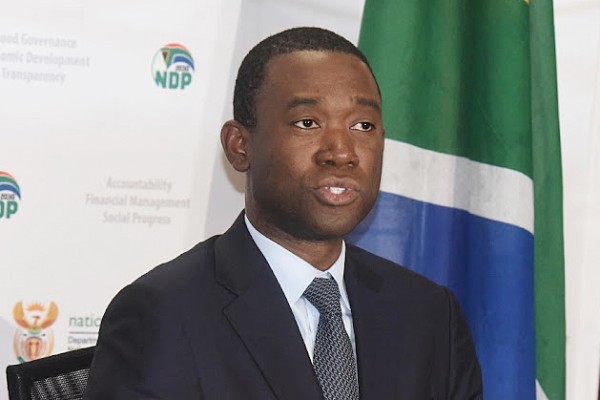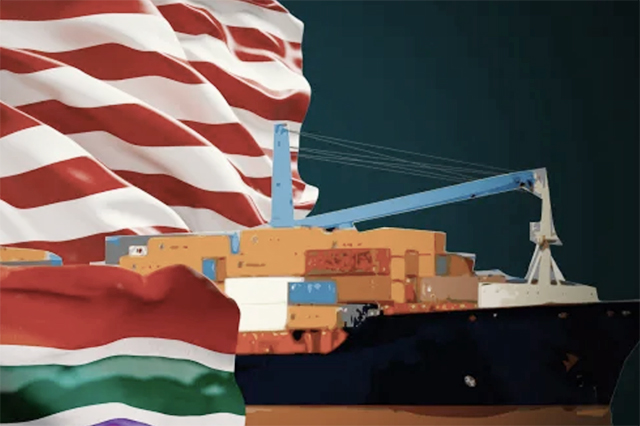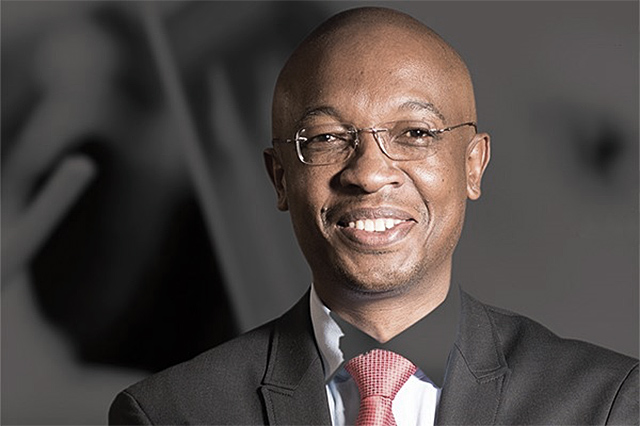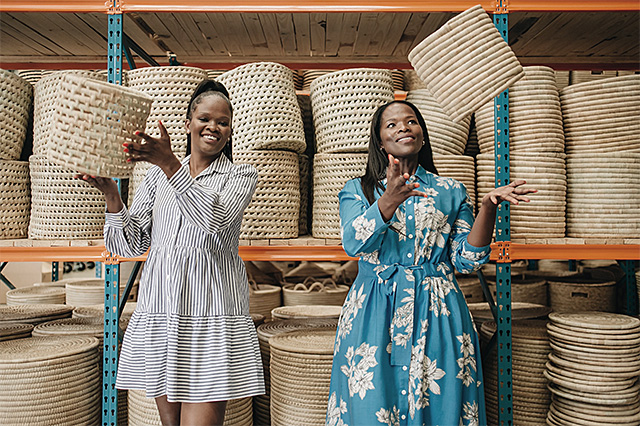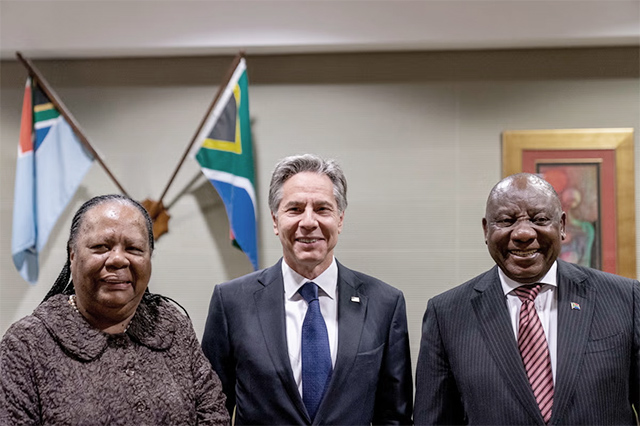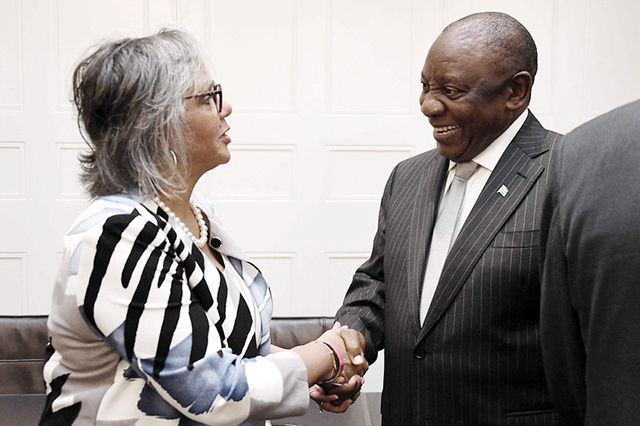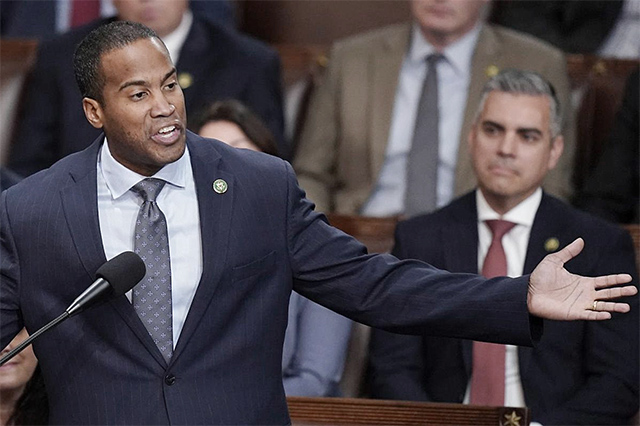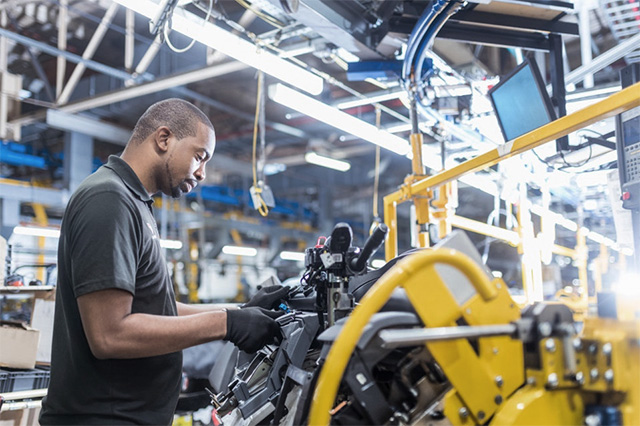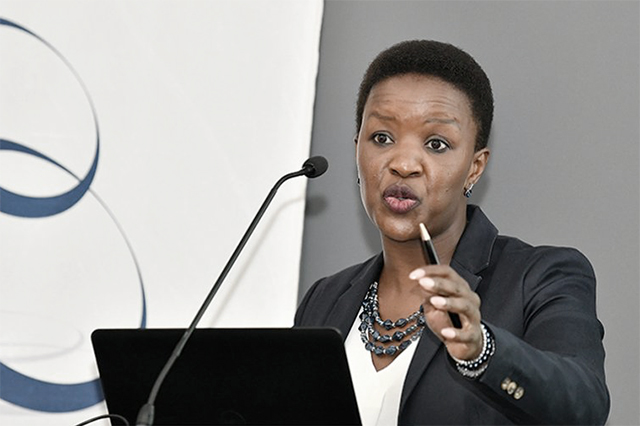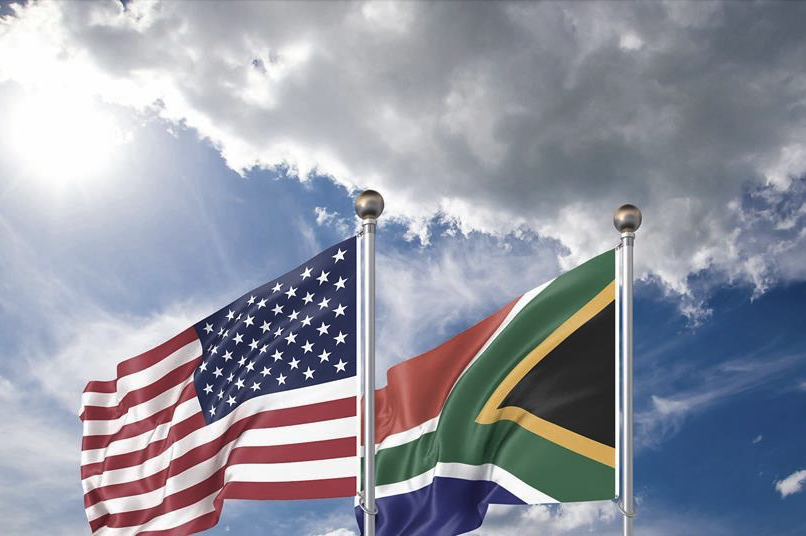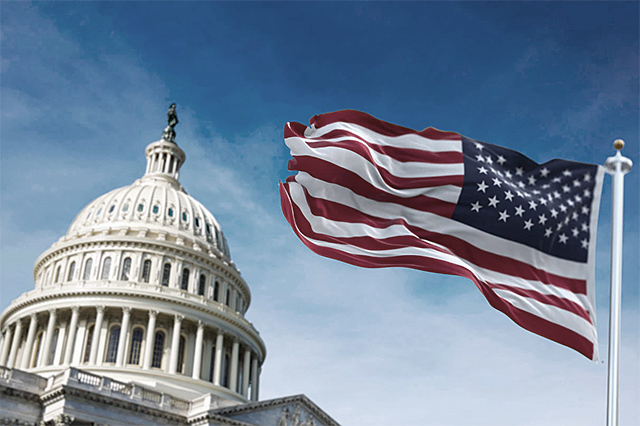Remarks by Deputy Treasury Secretary Adeyemo on the US-South Africa economic relationship
As Prepared for Delivery in Johannesburg, South Africa
Thank you for the warm welcome. I want to express my gratitude to Consul General Spera and the American Chamber of Commerce for hosting me. I am honored to be joined today by South African Entrepreneurs that are building companies to unlock the economic potential of their country.
I owe my own presence here today to the inspiration I drew from South Africa. In the middle of the night nearly 35 years ago, I was shaken awake by my father, asking me to follow him. Entering the sitting room, I found the television already on. Instead of sitting down, my father just stood in front of our small television watching a scene I did not understand.
There were people who looked like me screaming, shouting, and waving flags. As these people shouted with joy, I turned to see my father crying for the first time in my life. Back then, I had no idea that this moment would be etched into my memory, helping to inspire my interest in public service.
As South Africans know far better than anyone, the significance of what happened on February 11, 1990, extended far beyond the confines of my sitting room and reverberated far beyond South Africa. Nelson Mandela’s release from prison became more than just a historic event; it became a defining chapter in the collective narrative of the anti-apartheid struggle for South Africans and in the global fight for civil rights. To my father, Mandela's release was more than a political victory; it was a testament to the resilience and spirit of a people who yearned for change.
South Africa and the United States have both come a long way from that day. We have seen progress and setbacks, but through it all we have maintained our strong belief in the democratic values that inspired our civil rights movement and your fight against apartheid. We now are countries where the right to democracy is extended to all our citizens. The promise of our democracies is that economic opportunity will not just be for the wealthy and well-connected, but for all of our people. My view is that forging a deeper economic relationship between our two countries is critical to extending opportunity to those who have been left out and left behind for far too long.
At the core of our economic relationship is the connection between our people, with thousands of South Africans living in America as well as thousands of Americans that call South Africa home. An important facilitator of our economic relationship is the African Growth and Opportunity Act (AGOA), a cornerstone that provides African companies and workers from 32 countries duty-free access to our market for more than 7,000 products.
South Africa has consistently been among the top beneficiaries of this arrangement. Because of AGOA, over $3 billion of South African exports to the United States entered duty free last year. This benefit represents the American commitment to a strong economic relationship with South Africa, and to economic integration with other countries in Africa as well. President Biden has urged the U.S. Congress to renew AGOA—showing support not merely for a trade agreement but for our close partnership with companies and people in Africa.
Today, as a partner invested in South Africa’s success, I would like to talk about three key areas to unlocking the economic potential of the South African economy: (1) reliable power; (2) deepening South Africa’s connection to the global economy, especially the clean energy supply chain; and (3) stemming the tide of corruption.
No country’s economy can succeed without keeping the lights on. South Africans should not have to rely on an app to determine if they can prepare a meal for their families nor should your businesses be forced to spend thousands of dollars on generators. South Africa has the resources to generate reliable power for its citizens.
What I have heard from South Africans is that keeping the lights on is not a question of capacity, it is a question of political will to make the decisions necessary to modernize the grid and enable new generation sources to come online. Allowing for more renewable energy development is a sustainable and cost-effective means of helping to end the electricity crisis. The United States recognizes the scale of the challenge and, along with the other parties in the Just Energy Transition Partnership (JETP), stands ready to provide South Africa with financial resources and technical assistance to jumpstart the energy transition and solve the energy crisis.
Two years into this first-of-its-kind JETP model, South Africa has made important progress on implementing policies that open power generation to private sector investment, resulting in 66 gigawatts of renewable energy projects at various stages of development. If unlocked with transmission investments, this pipeline would be more than enough to end loadshedding and meet South Africa’s air pollution and climate goals. The multilateral development banks also have a strong role to play here, and we were pleased to support a nearly $2 billion financing package to South Africa that includes development policy loans from the World Bank and African Development Bank, and our partnership is ready to provide more than $9 billion of financial assistance.
The United States is also committed to South Africa’s mission of ensuring that the energy transition must be a “Just” one. To that end, we increased our grant commitment by $45 million in 2022 to support job training programs in the coal-intensive Mpumalanga region. To further demonstrate our support, Secretary Yellen visited Mpumalanga last January to talk to workers and communities about their challenges and aspirations.
The transition to clean energy should create jobs and economic opportunity for South Africa. Many of the minerals that are core to this transition can be found here, making it essential for companies to extract them responsibly. Given the global need for these minerals, the clean energy supply chain should create significant jobs for South Africans.
But this industry will not thrive unless there are the right economic incentives for companies to invest in extraction. The history of mining and many other industries in South Africa are colored by racism. But in order to afford the cost of addressing the legacy of racism, South Africa needs the wealth and opportunity this sector can bring to the country. This can and must be done in a way in which the benefits of investments in this sector are not concentrated in the hands of a few.
As the world demands more minerals to drive this transition, it can create more opportunities to make sure gains are equitably shared with all South Africans. We are committed to working with South Africa to build a clean energy supply chains that invests in workers and protects the environment.
But to unlock the full potential of South Africa’s rich resources, South Africa needs to implement policies that will allow its diverse service sector to thrive. The United States is making investments to help grow South Africa’s diversified economy. For example, the American Development Finance Corporation supported the Africa Data Centres project which is bringing 35 megawatts of capacity to South Africa, creating hundreds of construction jobs, and helping to provide the digital infrastructure needed for the growing IT and fintech sectors, as well as other sectors of the economy.
Investments alone cannot unlock the potential of your economy. My conversations with South Africans from a diversity of backgrounds makes clear that progress on reliable energy and addressing all the other challenges this great country faces is inhibited by corruption. Corruption is a tax the rich and powerful put on everyone else. We think about this a lot in the United States; in fact, my department just released our National Risk Assessment on Money Laundering, which highlights the costs of corruption in our country and how we can work to end it. No nation is immune from these challenges. We humbly want to be your partner as the South African people take steps to address corruption. Last year, the U.S. and South Africa launched an effort to marshal our collective resources towards the fight against illicit wildlife trafficking, a trade fueled by corruption and organized crime. We want to build upon this work to leverage international frameworks to combat corruption and promote transparency in various sectors, ensuring that resources are allocated efficiently for the benefit of all citizens.
As you know, a focus on combatting corruption creates a positive environment for job creation in South Africa. South Africa’s greatest resource is the creativity and ingenuity of its people. An unemployment rate of 43 percent among people under 35 years of age means this country’s greatest resource is being underutilized. I know from employers that the challenges of the education system often leave young people unprepared for the labor market. On Thursday, I’m looking forward to visiting the Harambee Youth Employment Accelerator to discuss job readiness and the entrepreneurship landscape for young South Africans. This ecosystem is teeming with ideas and talented people.
At the core of any democracy must be a commitment to providing economic opportunity for its citizens. It is what the South African people deserve, and we want to be your partner in unlocking that economic opportunity. I believe there is great promise in our economic relationship because it is not built just on transactional value or out of necessity. It is instead grounded in our shared values—democracy, equality, and respect for human rights—values that form the bedrock of both our nations.
That is why Bobby Kennedy could speak to the ripples of hope and inspire young people from Soweto to students in Cape Town, just as Mandela’s unyielding march for freedom could change the life of a young boy in Southern California and university students across America.
That is also why we can engage in robust debates, often on fundamental questions. It is through these conversations, arguments, and collaborative efforts that we refine our ideas and make informed decisions. In these moments, when we can be honest with each other and work together to find collective solutions, our partnership is truly tested and strengthened.
And despite the real differences our countries often have, there is so much more that ties us together. It is our values, our hopes, and our desire to promote economic opportunity for all our citizens. For the United States, Africa’s success and South Africa’s success will mean success for all of us.


